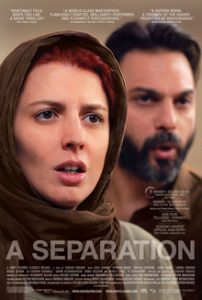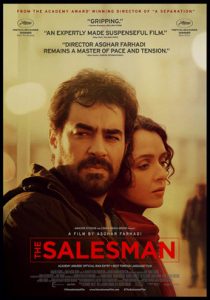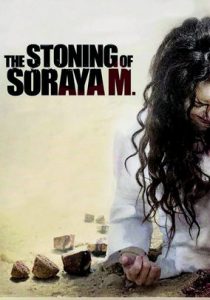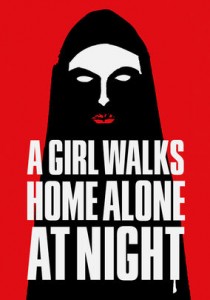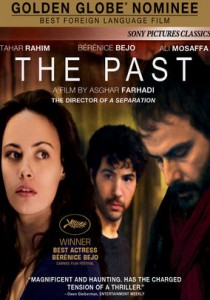A Separation-2011
Director Asghar Farhadi
Starring Leila Hatami, Peyman Moaadi
Scott’s Review #734
Reviewed March 21, 2018
Grade: A
A Separation is a 2011 Iranian film that was awarded the Best Foreign Language Film Academy Award statuette, the first Iranian film to achieve the honor.
The film is a wonderfully complex family drama and weaves typical family issues (divorce and school issues) with more complicated and cultural leanings, and keeps going and going with story nuances.
A Separation is directed by the acclaimed Asghar Farhadi, who is also responsible for the brilliant screenplay- this is a top-notch film.
Presumably set in Tehran, or a more progressive (by Iranian standards) city in Iran, husband and wife Nader and Simin reside with their teenage daughter, Termeh, and Nader’s elderly father, who suffers from Alzheimer’s disease.
Frustrated by her husband’s refusal to leave the country for a better life, Simin files for divorce, but her wish is rejected by male judges. When she leaves her family anyway, Nader is forced to hire a pregnant caregiver, Razieh, to tend to his ailing father.
After a controversial tragedy ensues, causing Razieh to suffer a miscarriage, the film shifts directions and adds an entirely new layer to the already fascinating story.
Farhadi is very keen on his delivery of a good story- he traditionally mixes themes of culture and social class in an interesting way as his future, 2017, work, The Salesman, would also do.
Thanks to Farhadi’s innovative storytelling, more notice is taken of Iran and Iranian culture, thereby humanizing its citizens more within the craft of film.
We see Iranian people just like ourselves and not the radical or dangerous individuals we are programmed to see.
With A Separation, there are no clear-cut protagonists or antagonists, and the viewer’s allegiances may shift throughout the run of the film.
Do we champion Simin for desiring a better life for herself and Termeh or scold her for refusing to live with her family? A progressive woman for sure, she is a layered character in her ambitions and her autonomy.
Nader is also a complex character- heroic for desiring the best of care for his father, but he is also fraught with danger and bad temperament, which is the main reason for the second half of the film, and leads to Razieh’s predicament.
Viewers will not be certain whether Nader is a good man or a villain, or perhaps a hybrid of the two. Subsequently, this is the meat of the entire story and makes for an enthralling experience in character development.
As if the brilliant screenplay was not enough to demand a good watch, the acting across the board is wonderful. A cast including seasoned Iranian actors, Leila Hatami and Peyman Moaadi as Simin and Nader, these are my favorites and are quite adept at carrying along with the nail-biting tension in masterful form.
Shades of Alfred Hitchcock are evident throughout the film as the tension unfolds to a crescendo and the action builds and builds and builds in layers upon layers of good stuff.
The quick editing and unique camera angles mirror some classic works of the famous director.
The success of A Separation is the film’s fast-paced, nicely edited construction, in a way that, at over two hours in length, the film speeds along rather quickly, and causes those who experience it to ponder, wonder, think, and ascertain.
Asghar Farhadi has quickly become a prominent director, met with obstacles from his native country, and yet surpassing these hurdles to construct a great film.
I look forward to many more of his works.
Oscar Nominations: 1 win-Best Original Screenplay, Best Foreign Language Film (won)
Independent Spirit Award Nominations: 1 win-Best International Film (won)
